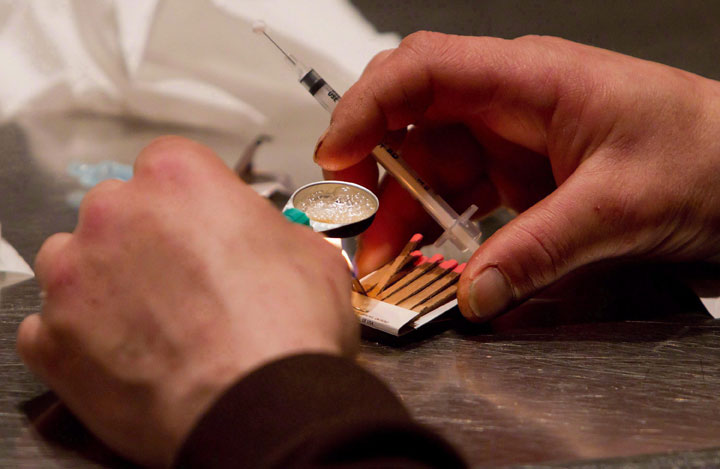A professional organization representing thousands of B.C. nurses has joined the call for the decriminalization of people who use drugs.

The Nurses and Nurse Practitioners of B.C. (NNPBC) along with the Harm Reduction Nurses Association (HRNA), a national group that advocates for harm reduction through nursing, made the call in a statement published Thursday.
“As nurses who work in B.C. and provide frontline care in the midst of this public health emergency, we see firsthand the impact of criminalization on our clients, on their families, on our practice and our communities,” reads the statement.
“We see decriminalization as an essential step to remove barriers to care and support, reduce stigma and discrimination, improve health and socioeconomic outcomes, and work toward a more just and compassionate society.”
British Columbia saw 1,535 deaths from illicit drugs in 2018 and 1,493 in 2017. The latest statistics from the BC Coroners Service show that at least 462 people have died of overdoses this year.
WATCH: Is it time to regulate the drug supply in B.C.?

The groups point to an April report by Dr. Bonnie Henry, B.C.’s chief medical heath officer, which advocates for decriminalization as a key initiative to reducing the death toll from the opioid overdose crisis.
Decriminalization means that the possession of illegal drugs for personal use would not lead to incarceration or a criminal record.
“Experts, including people with lived experience, agree that our existing drug laws are further stigmatizing people living with addiction, a chronic, relapsing health condition,” said Henry at the time.
The City of Vancouver, Metro Vancouver’s top doctor and law enforcement officials including Abbotsford police chief Mike Serr and Victoria police chief Del Manak have also supported the call for decriminalization.
The two nursing groups say they want to see B.C. move to a model that downplays policing or administrative penalties and prioritizes links to health care and social services.
WATCH: Vancouver marks grim overdose anniversary

“These punitive approaches are ineffective and have the opposite effect,” reads the statement.
“Instead of discouraging drug use and protecting people from harm associated with drug use, they actually put people at the risk of getting ill and dying, increase harms, create barriers to health care and social services, fuel stigma, and cause longlasting barriers to employment and housing.”
The groups argue that decriminalization could form a foundation for further steps, such as granting access to a safe supply of drugs and creating better access to housing, mental health services and drug treatment.
At the time of Henry’s call for decriminalization, Public Safety Minister and Solicitor General Mike Farnworth expressed little interest, stating that possession of illicit drugs remains illegal under federal law.
Global News has requested comment from the minister on the latest call.




Comments